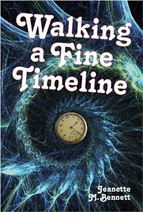Yesterday I explored Göttinger Wald or Göttingen Forest to the west of town. The spring flowers were everywhere. I got a bit carried away and spent more time than I had planned. The sun was creeping behind the hills, so I headed back to town before it got dark.
I made it out of the forest before nightfall, but not before reaching the Inn I was staying at. I was taking a shortcut across Göttingen University campus when I noticed lights in the window of one of the buildings. Bit odd for a Saturday night for anything other than a dorm. I then recognized the building as the Royal University Observatory.
 |
| Royal University Observatory |
The front door at the portico opened. “Hallo!” He called.
I went up and introduced myself. I told him I was an English visitor and my German was not “wunderbar.” He just grinned and said his English really “sticken” but I was welcome to butcher his language if I wasn’t opposed to him butchering mine.
 |
| Ernst Klinkerfues |
“So you are the director?”
Klinkerfues made a face. “No, I guess I’m the assistant. Back in '16 when they finished the observatory, Carl Friedrich Gauss was made the director. By '51, Gauss was getting on in years, so I was hired as his assistant. I had been studying mathematics and astronomy at the University of Marburg, but was able to get my PhD while I worked here.”
“I thought Gauss was an mathematician.”
“Yes, but what good is math if you don’t apply it. He was very interested in astronomy, geophysics, statistics, analysis, gravity, optics--I don’t know what all. A brilliant man. I was privileged to have worked with him. Pity our time together was short.”
“He left?”
“Passed away in ‘55. That’s when they made Weber the director of the observatory.”
“Wilhelm Eduard Weber, the physicist? Yes, I met him. I didn’t know he was an astronomer.”
“He’s not.”
“Then why did they make him Director of Astronomy?”
Klinkerfues shrugged. “University politics, I suppose. I’ve been told I don’t dress well enough. I see no reason to be uncomfortable. And I have a sense of humor they don’t appreciate. I just think a paper should be entertaining as well as informative, so students will read it.”
I looked down at my clothes. I dress more like an absent minded professor than a dandy. I have bachelor written all over me. “I’m a history researcher from Cambridge myself. I suppose if I tried to become Head of the History Department, I would get laughed out of the Board of Directors meeting.”
Klinkerfues nodded. “That’s what happens when you let people who aren’t really part of the academic life make decisions. I don’t think they ever talk to students and other faculty. They just judge you by your cover. Well, I suppose it’s just a title. Weber lets me run the observatory and I’m allowed to live in the east wing. I’m the real astronomer here. By the way, are you interested in astronomy, Dr. Howe?”
“I’m a historian by profession, but who isn’t interested in the stars?”
“Would you like to have a peek through my telescope?”
I spent a couple of hours peering at celestial bodies while my host gave me a lecture on astronomy. My later research on the man showed I was nothing special. Klinkerfues was known for giving lectures to any size audience, even if it was only one student. The man is mad about the stars, and eager to share his passion. He has already discovered six comets and will eventually catalogue 6900 stars.
It was getting late, and I had taken up far too much of Klinkerfues’s time. I thanked him and wished him luck.
I discovered later that he will be made “director of practical astronomy” in 1868. It will be a shallow victory. Director of Theoretical Astronomy will be Ernst Christian Julius Schering, again another mathematician and not an astronomer. He and Klinkerfues did not get along.
I found Klinkerfues to be a friendly and kind--and it breaks my heart to report the end of this wonderful man’s life. Ill-advised financial blunders, losing battles with university politics, failing health and other disappointments will drive the poor fellow to shoot himself in 1884. His memorial will be an asteroid and six comets named in his honor. Most fitting that his name be forever among the stars he loved.




No comments:
Post a Comment
Due to bots sticking ads into the comments I am now forced to moderate. Differing opinions are welcomed. This is history, which is the surviving written record, which may or may not be accurate. I will even allow comments pushing other books or websites as long as they are relevant.